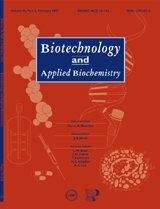



Henry Shannon Kingdon - Associate Editor

Henry Shannon Kingdon became an Associate Editor of Biotechnology and Applied Biochemistry in 1998. Dr Kingdon received a Bachelor's degree from Oberlin College in 1956, with honors for independent studies in chemistry. He then attended Western Reserve University, where in 1963 he received both an M.D. and a Ph.D. in Biochemistry; his thesis advisor was Earl Davie. After two years as an intern and a residency in Internal Medicine at University Hospitals in Seattle, he became a Clinical and Research Associate at the National Institutes of Health for two years, in the laboratory of Earl Stadtman. With several colleagues he discovered the regulation of E. coli glutamine synthetase by adenylylation, and by time-dependent interactions with divalent cations.He was appointed Assistant Professor of Medicine and Biochemistry at the University of Chicago in 1967; he was promoted to Associate Professor in 1971. In 1973 he was appointed Professor of Medicine and Biochemistry at the University of North Carolina in Chapel Hill, where he remained until he accepted a position with Baxter Healthcare in 1981. At Baxter he supervised clinical trials of Hemofil-T and Gammagard, which led to FDA approval, and also registrations in Europe and Japan. He then supervised research, development and clinical evaluation of Hemofil-M, and was also involved in the development and eventual licensing of Recombinate, both of which achieved world wide distribution. In the 1990s he was involved in various manufacturing issues and in gene therapy. He retired from Baxter in December of 1999. Dr Kingdon is a member of the American Chemical Society, the American Society of Biochemistry and Molecular Biology, the American Society of Hematology, the International Society of Thrombosis and Haemostasis, the Central Society for Clinical Research, Sigma Xi and Phi Beta Kappa.
Dr Kingdon’s interests include the enzymology of blood coagulation, particularly those reactions involving Factors XI, IX and VIII, the treatment of patients with haemophilias A and B, and the commercial development of Factor VIII and Factor IX preparations to treat such patients, the industrial-scale production of monoclonal antibodies and recombinant proteins from large-scale mammalian cell culture and clinical research demonstrating the safety and efficacy of a variety of biologics, including one recombinant Factor VIII.
|


